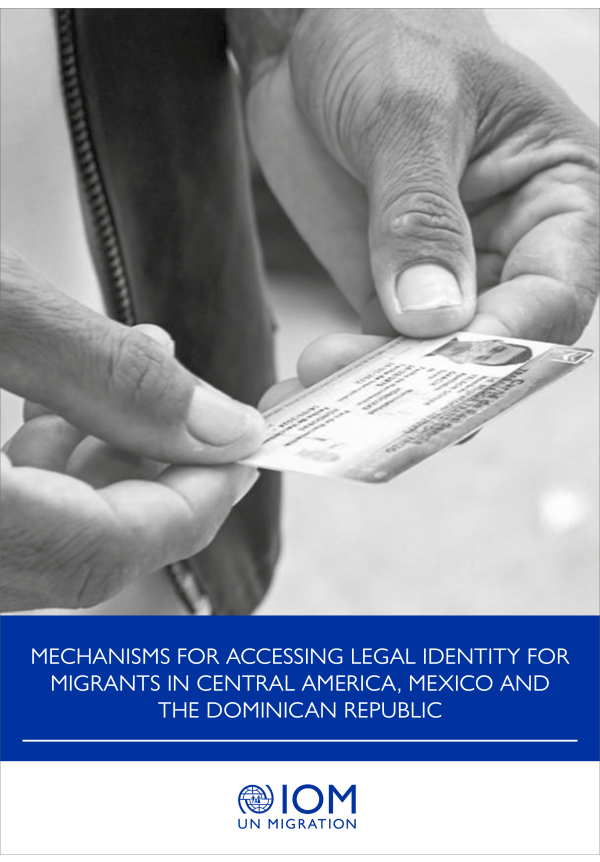Mechanisms for Accessing Legal Identity for Migrants in Central America, Mexico and the Dominican Republic

Mechanisms for Accessing Legal Identity for Migrants in Central America, Mexico and the Dominican Republic
Access to legal identity is an essential aspect of safe, orderly and regular migration. Elements that certify legal identity include registration of birth and other vital events, national identity documents, and travel documents, among others. These documents are, in turn, indispensable for different processes of regularization and civil registration for migrants in destination countries. However, there are millions of people in the world who do not have legal identity documents recognized by any competent government agency.
This regional study examines the mechanisms of access to legal identity for migrants in Central America, Mexico and the Dominican Republic. Through a mixed methodology that includes desk review, interviews with key stakeholders and a participatory workshop with government representatives from the region, three types of systems through which people access legal identity documents are analysed: the civil registry and identity management system in countries of origin, the legal identity management system in relation to regularization processes and access to civil registry, and the system of assistance available to migrants through consular representations of their countries of origin in destination countries.
The report identifies both needs and good practices in the region, providing a list of actionable recommendations aimed at strengthening local legislation, public policies, regional agreements and procedures that guarantee access to legal identity for all persons.
Read More
- List of tables
- List of figures
- Glossary
- Executive summary
- Introduction
- Methodology
- Chapter I. Legal identity: A conceptual approach
- The right to legal identity
- Key populations and IOM institutional strategy
- Chapter II. Systems for accessing legal identity in Central America, Mexico and the Dominican Republic
- Civil registration and national identity management systems
- Management of legal identity in relation to regularization processes and access to civil registration for migrants
- Consular services and access to travel documents
- Chapter III. Regional and inter-institutional needs to ensure access to legal identity for migrants
- Increased modernization and interoperability mechanisms between institutions
- Building trust from migrants towards state authorities
- Dissemination of clear and accessible information on civil registration and regularization procedures
- Adequate knowledge of regulations and mitigation of discretionary decisions in institutions
- Mitigation of barriers to accessing public services as a consequence of lack of proof of legal identity
- Addressing the digital divide
- Identification and assistance to persons in vulnerable situations
- Chapter IV: Recommendations
- Inter-institutional recommendations
- Recommendations for regional cooperation
- Recommendations for strenghtening civil registration systems
- Recommendations for immigration authorities
- Recommendations for strenghtening the capacities of consular representations
- Annex
- Categories for the analysis of the functioning of systems for accessing legal identity
- References